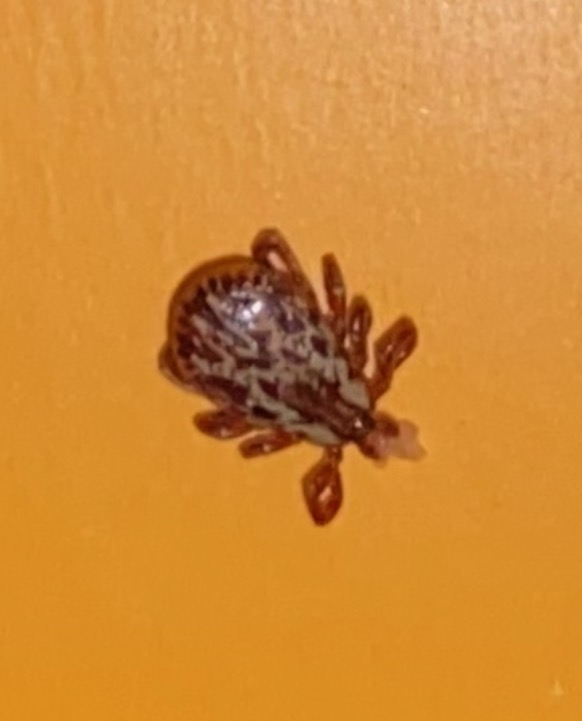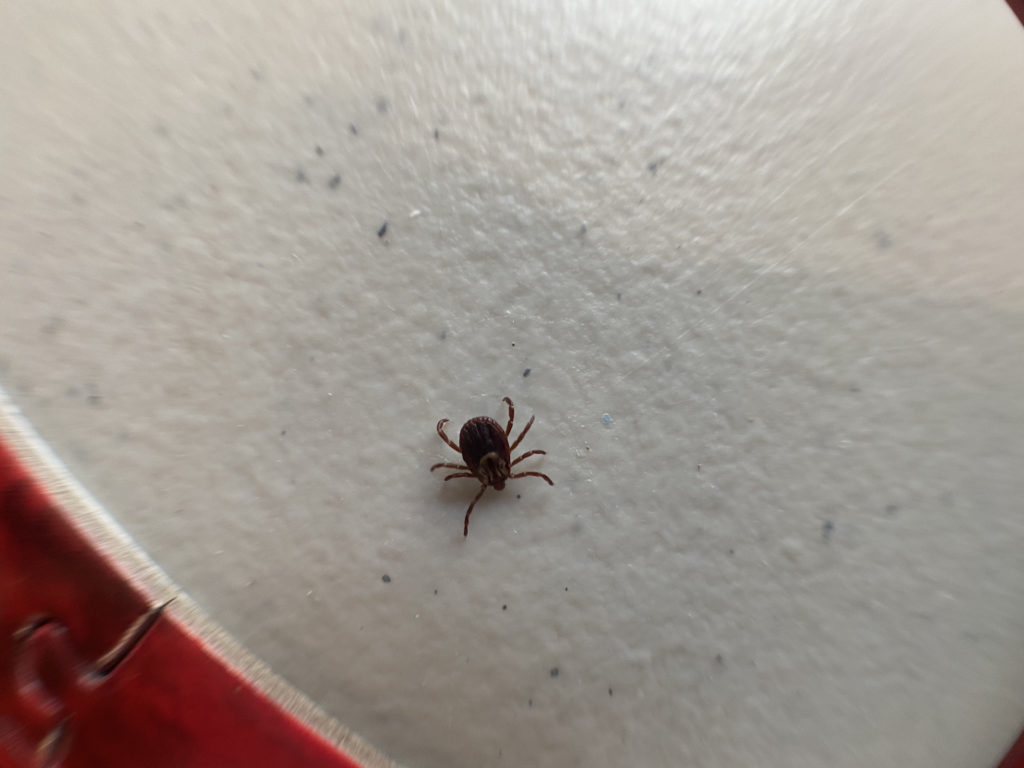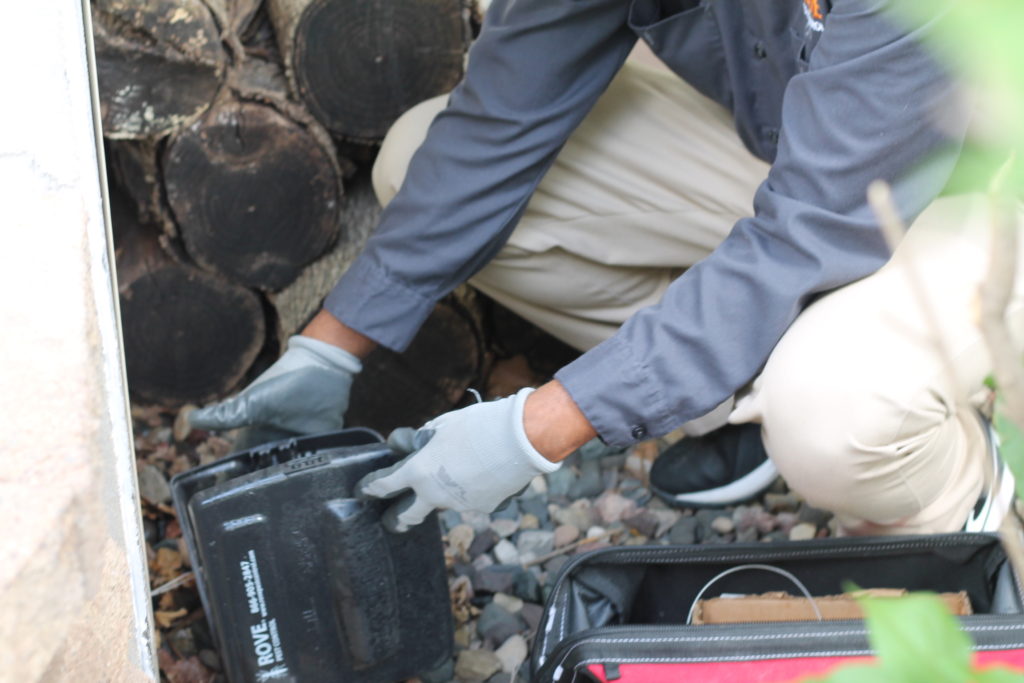My daughter loves to run, hike, and climb with me. Whenever we hit the trails or the parks, I am sure to have her check for ticks afterward. Working in pest control, this is just automatic. When she found a tick on her on a random summer day, it caught me off guard. It got me thinking, when do I have to watch for ticks?

Times of Year to Watch For Ticks
Unlike many pests which have short life cycles of a year or less, ticks such as the black-legged tick can live 2-3 years.
- Spring – as things warm up, plants start to grow again and animals start to move. This opens up doors for ticks to have better access to hosts. Also, people tend to get out and start working in their yards, going for hikes, and ticks tend to be far from our minds since we have thought less about them over the winter.
- Summer – The full swing of summer offers plenty of travel, hiding, and dropping-onto-new-host options for ticks. Not only are populations peaking along with this, but people exposed to ticks tend to be focused on all of the summer activities and may find themselves distracted or too busy to check for ticks regularly.
- Autumn – The false sense of security brought on by cooling temperatures disengages many people from watching for ticks. Keep in mind that leaf cover and host animals starting to make moves to secure overwintering sites may bring ticks into areas where they haven’t been in other parts of the year.
- Winter – The only tick known to live and breed indoors is the brown dog tick (hipicephalus sanguineus). This tick can find its way throughout structures feeding and catching rides on pets, rodents, and unfortunately people.

Activities to Watch for Ticks
While camping and hiking are prime times to watch for ticks, keep in mind that they are masters of finding hosts. Runners and bikers are often surprised that a tick was able to find them while they were moving so quickly. Parents are often surprised that their children picked up a tick while playing in the backyard. I have found ticks wandering across picnic tables at rest stops on asphalt hundreds of meters from anything most would consider a tick habitat.
With so many places and ways to pick up ticks, the best thing is to just include tick checks as part of your shower routine. Ticks aren’t like mosquitoes with quick access needle noses to bite and fly. Ticks take time to embed in the skin and begin feeding. Even as they are embedding, disease transmission may not occur right away. In most tick bite situations, it is 24-48 hours before the risk of disease transmission is significant. For those that shower daily, this gives plenty of time to catch any ticks that found you since your last shower.
What Are the Chances
The CDC reports roughly 50,000 tick bites each year in the US. Considering this is just the number that gets reported to them, it is hard to guess how many actually occur. There are many that people know about, but there are also far too many people that don’t even know to check for ticks. The important thing to remember is that checking regularly for ticks is the best defense. Ticks can be hanging out where we least expect them. Last year I picked up a tick just from walking around the business park on the sidewalk.
Reduce the Chances
Since I can’t think of any benefit of being bitten by a tick, here are the steps you can take to reduce your chance of tick bites and subsequent infection:
- Wear proper apparel when out in nature
- Make tick inspection a regular habit
- Reduce tick harborage around your property
- Address animals within your control that are potential carriers
- Directly reduce the tick population on your property

From education to treatment, the Rove Pest Control Tick experts are here to help. Reach out to us today to plug any gaps in your tick protection you don’t want to deal with.
About Rob Greer: Pest Control Expert and Industry Leader
Rob Greer, co-founder of Rove Pest Control, has a deep connection with nature, developed during his upbringing in rural Idaho where he raised horses and cattle. He began his career in pest control in 2001 to support his university studies. After earning a BS in Business Management, Rob, along with Lenny Gray and McKay Bodily, founded Rove Pest Control.
Rob has played a pivotal role in shaping the operational framework of Rove Pest Control, with a focus on personal development for team members, public health awareness, and tailoring services to meet the needs of individuals and communities.
As an Associate Certified Entomologist (ACE) and Subject Matter Expert (SME), Rob has made significant contributions to the pest control industry. He has collaborated on the Minnesota Department of Agriculture’s UMN Extension certification manual and exam development, the National Pesticide Applicator Certification Core Manual for the EPA, and the Quality Pro Customer Service Credential Task Force. His expertise has also been recognized in his testimony for the pest control industry before the Minnesota state legislature as a State Policy Affairs Representative. Currently, Rob serves as the President of the Minnesota Pest Management Association Board. Learn more about Rob Greer.